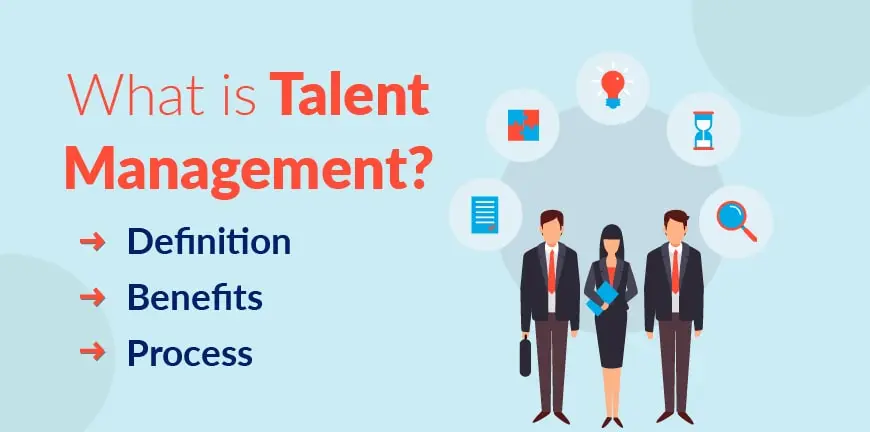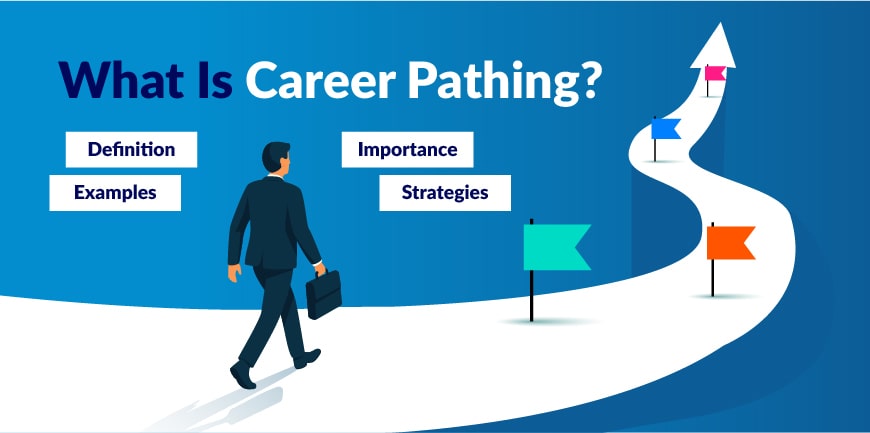
What is Flexible Staffing – Definition and Importance?
09/08/2024
What Are the Steps in the Hiring Process?
10/08/2024Talent Management is one of the most critical functions of an organization. Most organizations, during good times, tend to take their company’s talent for granted and its easy and ok to do so. But when you invest in talent management during times of peril, it can give your company a great edge. Putting your employees first is extremely important to build a healthy workforce.
Over the years, to cater to the changing trends, talent management practices have evolved drastically much like other aspects of work. Strategic talent management is important if organizations want to stay competitive in today’s fast paced environment.
Definition of Talent Management
Talent Management is a strategic approach taken by organizations to attract, develop, retain and enhance skills and capabilities of employees. Talent Management in HR includes a wide range of activities and processes that help ensure that the organization has the right people with the right skills in the right roles at the right time. It is also one of the most crucial functions for achieving organizational goals, foster a positive workplace culture and maintain a competitive edge in the market.
Why is Talent Management Important?
Talent management is one of the significant pillars of an organization that decides the organization’s overall performance. A McKinsey survey done in 2018 revealed that 99 percent of respondents who reported their company’s talent management was effective, also mentioned that they outperformed their competitors when compared to the 56% of all other respondents. Talent management is crucial for organizations as it directly impacts their ability to achieve strategic goals and maintain a competitive edge.
What are the Benefits of Talent Management?
Your employees are the reason why your business thrives, especially those great set of employees who not only aim to grow to advance in their careers but also have the best interest at heart for their organization as well. Some of benefits of talent management in HR are-
1. Better recruitment and retention
A perfect talent management strategy helps enhance employer branding, highlighting the best points about the organization making it more attractive to prospective professionals. And by focussing on employee development and satisfaction, organizations can retain valuable employees and reduce attrition rates to a greater extent.
2. Employees tend to perform better
If your talent management process is effective, meaning you’ve set out clear work expectations, provide learning and development opportunities to help enhance skills of employees, and are open to feedback from employees, you’ll naturally have a higher number of satisfied employees. And a happy employee will certainly perform better leading to better organizational productivity.
3. Effective succession planning
An effective talent management strategy in place helps build a capable talent pipeline with individuals ready to take responsibilities and are looking to becoming future leaders. And needless to say, an effective talent management planning process can reduce chaos or issues that could occur during leadership transitions ensuring better business continuity.
4. Cost efficiency
Hiring and retaining the right talent can save huge recruitment costs that organizations need to bear if they hire employees who need quite a bit of training. Efficient talent management techniques help organizations plan for a better workforce, that has exactly the right number of employees with the right skills, optimizing labour costs.
5. Better innovation and creativity
A well-balanced workforce can bring in perspectives that are fresh, innovative and creative. And as employers, as part of an effective talent management strategy, it would help if you encouraged employees to continuously learn and hone their skills. This will help keep up to date with industry trends and best practices.
6. Compliance and risk management
Housing a well-rounded workforce is not only great for succession planning but also helps the organization eliminate risks associated with talent shortage or sudden exits etc. A big part of talent management also includes ensuring compliance with labor laws and regulations, reducing legal risks.
What is the Talent Management Process?
The Talent Management Process involves several stages right from attracting the right talent to retaining them. It is a process that ensures that the organization is equipped with the right talent to meet their organizational goals.
Some of the key stages are-
1. Workforce planning
To attract the right talent, you must first be aware of the talent you already have and a definitive idea of the skills, qualifications and responsibilities you would want from the employees you are looking to acquire to meet your organizational needs.
2. Talent acquisition
Once you have an idea of the talent you require, you move on to the next step of acquiring that talent, which has three steps.
- Recruitment strategy- Craft a strategy that can help you attract the talent you need. This could include job postings, recruitment marketing, employer branding etc.
- Sourcing- There are various channels such as job boards, social media and other networking methods through which you can attract potential candidates, both passive and active.
- Hiring- Once you have a list of potential candidates you must evaluate their fit through interviews, assessments, background checks etc to see if they are the best for the role.
3. Onboarding
Post the selection of the candidate, as part of the onboarding process, an orientation program is given to the candidate to help them understand the company culture, values, policies and procedures. Additionally, training is provided to help the new candidates settle into the new workplace seamlessly.
4. Manage employee performance
In order to help the new employee perform at their optimum best, there is a need to establish clear goals that are not only reasonable but are meaningful goals that align with the organizational objectives. As part of managing employee performance its also important to assess their performance, provide constructive feedback and create developmental plans to help them grow.
5. Succession planning
Its essential that employers identify high potential employees who are cut out to take on higher leadership roles in the future. And whether there are such employees or not you can always train the ones you think that have it in them to become potential leaders with the required skills.
6. Employee engagement
One of the smart talent management techniques is implementing initiatives that improve employee engagement such as recognition programs, health initiatives etc. These strategies not only help in better employee engagement but also facilitate retainment of talent.
7. Retention strategies
Along with providing employees with learning and development opportunities, its also important to offer them the right compensation and benefits if you want them to stay motivated and loyal. You can include benefits such paid leaves, incentive programs, maternity leaves, medical insurance etc…
8. Analytics and reporting
It helps to gather data on various aspects of the talent management process, such as hiring metrics, employee performance, and turnover rates. By analysing this data, you can gain insights into the effectiveness of talent management strategies and identify areas for improvement.
Talent Management Planning and Best Practices
As an organization, if you want a solid talent pipeline, then its imperative that you follow the best practices. With effective talent management planning you can ensure that your organization has the right people in the right roles.
Here are some of the best practices for talent management planning-
- Evaluate your present workforce, you can identify skill gaps and anticipate future needs based on business goals, industry trends, and technological advancements.
- Use data and analytics to predict future workforce needs, by considering factors like market conditions, expected growth, and potential retirements.
- You must leverage technology to making sourcing, assessing and onboarding processers easier.
- Manage employee strengths wisely by recognizing top performers and rewarding them
- Take some of the administrative tasks off your plate by outsourcing payroll and HR responsibilities to an expert third party recruitment services provider such as Alp Consulting.
Talent management is a strategic approach to optimizing an organization’s workforce. From attracting to utilizing employees to achieve business objectives it involves a number of steps. By aligning talent management with business strategy, organizations can ensure they have the right people in the right roles and are motivated enough to bring success to the organization.
Effective talent management not only enhances employee performance and engagement but also contributes to a positive workplace culture and long-term organizational sustainability. In an increasingly competitive and dynamic business environment, talent management is essential for maintaining a competitive edge and achieving strategic goals.
Frequently Asked Questions
1. What is talent management vs. talent acquisition?
Talent Acquisition is the process of attracting and hiring qualified people. Talent Management is how you develop and retain these skilled hires. If you attract and hire good employees but don’t invest in their development, you won’t be able to retain them or unleash their potential.
2. What is the difference between talent management and HR?
The HR department lays the foundations for employee relations by ensuring employees are physically and emotionally safe, appropriately remunerated and treated well and within legal frameworks. In contrast, talent management builds on those foundations to create a successful business driven forward by the employees.
3. Challenges of talent management
There are several challenges in talent management
- Implementation difficulties
- Getting people onboard
- Juggling short term and long-term goals
- No definitive way to measure the success of the talent management strategy
- Risk of being unfair




